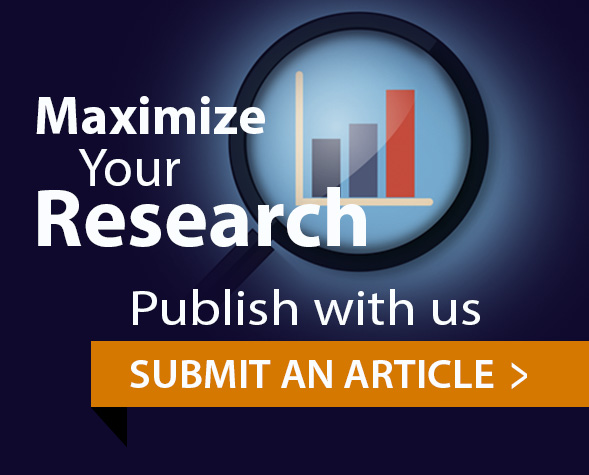
Epistemologies of Authentic Assessments Amidst the AI Advancement: An Evaluation of the Divergence Between Traditional and AI-Generated Scientific Illustrations
Issue: Vol.6 No. 10 2025 Article 5 pp. 996 – 1009
DOI : https://doi.org/10.38159/jelt.20256105 | Published online 31st October, 2025.
© 2025 The Author(s). This is an open access article under the CCBY license (http://creativecommons.org/licenses/by/4.0/).
Keywords: Active learning, Artificial Intelligence, Balance, practical application, digital competence, critical thinking, self-supervised learning.
Akben, Nimet. “Effects of the Problem-Posing Approach on Students’ Problem Solving Skills and Metacognitive Awareness in Science Education.” Research in Science Education 50, no. 3 (2020): 1143–65.
Beetham, Helen; Sharpe, Helen Beetham, and Rhona Sharpe. Rethinking Pedagogy for a Digital Age. routledge London, 2007.
Cetinic, Eva, and James She. “Understanding and Creating Art with AI: Review and Outlook.” ACM Transactions on Multimedia Computing, Communications, and Applications 18, no. 2 (May 31, 2022): 1–22. https://doi.org/10.1145/3475799.
Creswell, J. W. Education Research: Planning, Conducting, and Evaluating Quantitative and Qualitative Research. Upper Saddle River, NJ: Prentice Hall, 2012.
Creswell, John W, and J David Creswell. Research Design: Qualitative, Quantitative, and Mixed Methods Approaches. Sage publications, 2017.
Darwin, Diyenti Rusdin, Nur Mukminatien, Nunung Suryati, Ekaning D Laksmi, and Marzuki. “Critical Thinking in the AI Era: An Exploration of EFL Students’ Perceptions, Benefits, and Limitations.” Cogent Education 11, no. 1 (2024): 2290342.
Floridi, L., and J. Cowls. “A Unified Framework of Five Principles for AI in Education.” Philosophy & Technology 32 (2019): 687–703.
Heikkilä, T., and H. Niemi. “ AI Literacy in the Classroom: Preparing Future Teachers for Critical Use of Generative AI.” Education and Information Technologies 28, no. 5 (2023): 7895–7912.
Holmes, Sarah E. “An Exploration of Online Christian Faith Nurture for Children, Using UK Churches as a Case Study.” International Journal of Christianity & Education 25, no. 2 (2021): 169–83.
Luckin, Rose, and Wayne Holmes. “Intelligence Unleashed: An Argument for AI in Education,” 2016.
Mokganya, Mokgaetji Georginah, and Innocent Zitha. “Assessment of First-Year Students’ Prior Knowledge as a Pathway to Student Success: A Biology Based Case.” In Proceedings of The Focus Conference (TFC 2022), 732:233–46. Paris: Atlantis Press SARL, 2023. https://doi.org/10.2991/978-2-38476-006-0_19.
National Center for Education Statistics (NCES). The Condition of Education 2020. U.S. Department of Education, 2020.
Nkuna, Khulisile, and Innocent Zitha. “Exploring the Divine: A Deeper Look into Religious Motifs in Siswati Poetry.” International Journal of Research in Business and Social Science (2147- 4478) 14, no. 1 (February 25, 2025): 112–19. https://doi.org/10.20525/ijrbs.v14i1.3859.
Quillin, Kim, and Stephen Thomas. “Drawing-to-Learn: A Framework for Using Drawings to Promote Model-Based Reasoning in Biology.” CBE—Life Sciences Education 14, no. 1 (2015): es2.
Zitha, Innocent, Georgina Mokganya, and Orifha Sinthumule. “Innovative Strategies for Fostering Student Engagement and Collaborative Learning among Extended Curriculum Programme Students.” Education Sciences 13, no. 12 (2023): 1196.
Mokgaeti Georgina Mokganya serves as a Senior Lecturer and Researcher at the University of Venda, where she is an integral part of the Faculty of Science, Engineering, and Agriculture. Within this faculty, she is affiliated with the Department of Science Foundation, where she focuses on enhancing the academic foundation of students in the sciences. Her research interests encompass various areas within science education, with a commitment to fostering student engagement and improving teaching methodologies. Through her work, Mokgaeti aims to contribute to the advancement of knowledge and innovation in her field, while also mentoring aspiring scientists and engineers.
Innocent Zitha is a lecturer and researcher specialising in English Academic Literacy within the School of Languages in the Faculty of Humanities at North-West University. With over five years of experience in higher education, he has developed a profound understanding of the challenges students face in mastering academic writing and literacy skills. His research focuses on enhancing educational practices and promoting effective communication in English among diverse student populations. In addition to his teaching responsibilities, he has made significant contributions to his field through his scholarly work. He has authored and co-authored a total of 21 papers and three book chapters, all published in reputable peer-reviewed journals. His publications reflect his commitment to advancing knowledge in English Academic Literacy and improving educational outcomes for students.
Mokganya, Mokgaetji Georginah, and Innocent Zitha. “Epistemologies of Authentic Assessments Amidst the AI Advancement: An Evaluation of the Divergence Between Traditional and AI-Generated Scientific Illustrations.” Journal of Education and Learning Technology 6, no. 10 (2025): 996 – 1009. https://doi.org/10.38159/jelt.20256105.
© 2025 The Author(s). Published and Maintained by Noyam Journals. This is an open access article under the CCBY license (http://creativecommons.org/licenses/by/4.0/).
Featured

